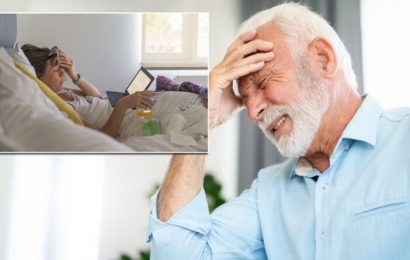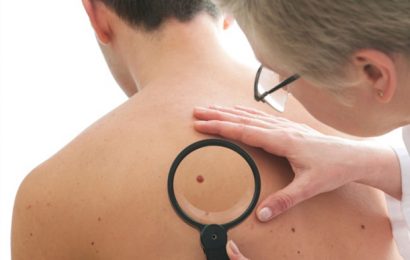
Prime Minister Scott Morrison floated the idea of a mandatory COVID-19 vaccine administered free to all Australians in an interview on radio station 3AW last Wednesday.
Although he later backed away from the concept, it raises an interesting question about how best to proceed once a suitable vaccine arrives on Australian shores.
At first glance, requiring the community to get the COVID-19 vaccine may seem like an astute, pragmatic idea.
But two medical researchers from UNSW Sydney caution against talk about making a vaccine mandatory before we have any idea about when we will get our hands on one.
“While these are unusual times and there is undoubtably a strong desire among the community for things to return to normal, it is important that governments take stock and consider what strategies will motivate the community,” says social scientist Dr. Holly Seale, whose research focuses on perceptions and behaviors of adults regarding vaccine preventable diseases.
Dr. Seale says it’s premature to be talking about making a COVID vaccine mandatory before discussing the whos, the whys and the wheres of administering such a program.
“While acknowledging that it may have been hasty to use the term ‘mandate,’ it is also important that we do not push the idea totally away,” she says.
“Groups like healthcare workers are required to have evidence of vaccination before they go and work with vulnerable populations. This is to prevent the transmission of vaccine-preventable diseases such as measles or influenza, between healthcare workers and patients. We may see States and Territories expanding the list of vaccine requirements that healthcare workers are required to receive, to include the new COVID-19 vaccine. It may also be a requirement for people working in aged care to receive this vaccine, as well as other occupations such as those who work in meat processing facilities and abattoirs where we have seen mass outbreaks.”
Dr. Seale says given healthcare workers’ experiences of treating COVID-19 patients and considering the burden of infection documented among them, there may be a high level of willingness among this group to receive a vaccine.
“There may not be a need to move beyond a voluntary based campaign. However, this is speculation and there needs to be research undertaken to explore the perceptions of staff members who may be targeted for vaccination due to their occupational risk,” she says.
Dr. Seale says beyond vaccine requirements for those at occupational risk, we also have corporate knowledge of the use of vaccine requirements in other settings.
“For example, Australians have previously been required to get vaccinated or take medicine when traveling to some parts of the world, such as the requirement to prove yellow fever, meningococcal or measles vaccination on entry to certain countries for travel or religious pilgrimage, or taking malaria tablets when visiting affected areas of the world. One way or another we’ve potentially encountered some sort of requirements in our lives over time,” she says.
However, while it is important to highlight that mandates do occur, and there may be some groups that are considered, Dr. Seale says we should think about this vaccine as being highly recommended for the general public.
“By calling it ‘mandatory,’ we may put people offside. And not necessarily because of any anxieties about the vaccine, but it may be that they just don’t want to be told what they are allowed and not allowed to do.”
Counter-productive
Professor Mary-Louise McLaws, a leading epidemiologist with UNSW Medicine’s School of Public Health and Community and advisor to the World Health Organization (WHO) says making the first COVID-19 vaccine mandatory may be counter-productive.
“I think making the vaccine mandatory will only go to increase vaccination hesitancy,” Professor McLaws says.
“Most scientists will explain that the first few iterations of a new vaccine, rushed to market, will have limitations such as short term immunity, meaning we’ll be needing revaccination or booster shots, not to mention the possibility of a poor response in the elderly who may require a specific vaccine just for them. We also need to be mindful of missed, adverse side-effects.”
Assuming hypothetically that all Australians take up the offer of a free COVID jab, how effective would that be? Professor McLaws thinks because we have so little experience with this particular coronavirus, it is unlikely an early vaccine will be the silver bullet many are hoping for.
“There is never a vaccine that protects 100 percent of those vaccinated,” she says. “Even with 100 percent uptake, not every person will elicit an enduring protective immune response. I suspect this will especially be the case with our elderly due to what we call immunosenescence—a gradual decline in immunity as we age.”
Professor McLaws says the R0 value for the virus—a measure of how infectious a disease is—will more than likely drop to less than 1 with very high vaccination rates. Globally, COVID-19 virus currently has been estimated to have an R0 value of greater than 2, meaning infections can grow exponentially.
“But with travel outside Australia and subsequent relaxing of social distancing measures by holiday makers, infection may occur in those who did not elicit protective immunity from their vaccine.”
How long the immunity lasts from an early vaccine remains to be seen, but Professor McLaws believes a likely scenario for a vaccine program may include annual booster shots until the WHO deems COVID-19 no longer a risk.
“In the meantime, pharmaceutical companies may improve their approach to a vaccine and this is one reason vaccines should not be patented, and if we think back to polio, the Salk vaccine never had a patent, which enabled Albert Sabin to improve on Jonas Salk’s invention and polio could be eradicated. It’s beholden of us to keep applying the simple and effective public health interventions to put less pressure on virologists so they can develop a safe vaccine.”
Getting the language right
Dr. Seale says that in rolling out a potential new vaccine, it will be important that the government works with the community to identify the factors that will promote acceptance.
“For some people, this vaccine may be seen as a way back to ‘normality,’ while for others, it may allow travel to visit loved ones overseas,” Dr. Seale says.
Source: Read Full Article


